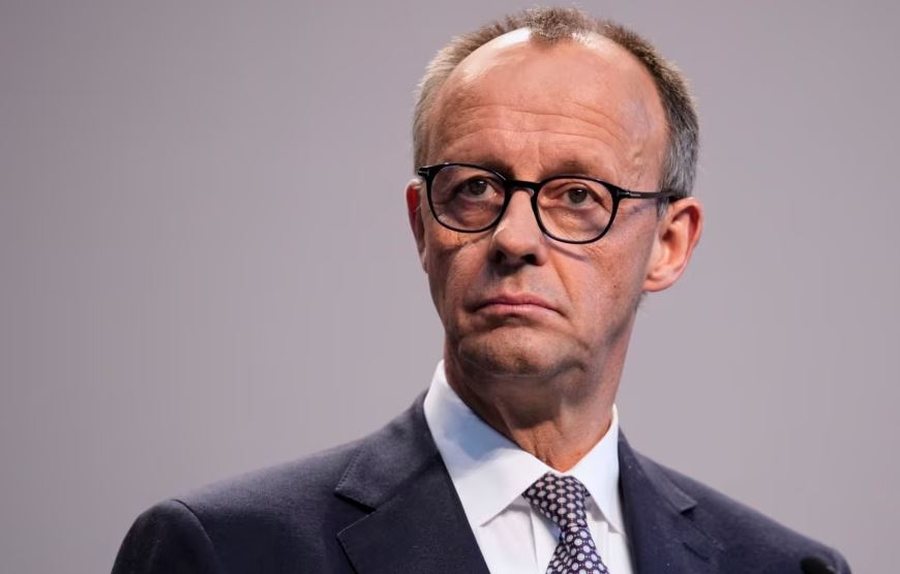
The leader of Germany's Christian Democrats, Friedrich Merz, announced that talks on forming a governing coalition have ended with an agreement, adding that he intends to take office as chancellor in early May.
Merz stressed that the coalition talks took place amid "rising international political tensions," citing the invasion of Ukraine launched by Russian President Vladimir Putin and tariffs imposed by the United States.
"The Russian aggressor, Putin, is showing no willingness to end the war. At the same time, economic uncertainties are growing rapidly. Just this week, the decisions of the US government have caused new turbulence," Merz said.
Merz will be Germany's chancellor, having reached an agreement on a governing coalition with the Social Democrats led by Lars Klingbeil, who is expected to become finance minister.
Support for Ukraine
After announcing the agreement on the new government, the coalition published a 144-page political program, offering strong support for Ukraine.
"We will provide Ukraine with comprehensive support so that it can effectively defend itself against Russian aggression and have a strong position in negotiations," the document states.
Germany's outgoing government, led by Chancellor Olaf Scholz's Social Democrats, has been a major supplier of military and economic aid to Ukraine since the invasion began in 2022.
Merz, as opposition leader, has often called for the government to act faster and bolder in this regard. But it is not clear what this will mean in practice.
During a visit to Berlin, Ukrainian President Volodymyr Zelensky said he hoped the new government would send Ukraine Taurus cruise missiles — a long-standing request of his. Merz, at the time, did not commit to fulfilling Zelensky's request.
The new government is expected to significantly increase Germany's defense budget, although it is not yet known exactly by how much.
Even before taking office, Merz has sought approval of reforms through the German Parliament, which means that strict limits on government debt will no longer apply to defense spending.
"Our security is currently more at risk than at any time since the end of the Cold War. The greatest and most direct threat comes from Russia," he said, in the new coalition's policy document.
Trump's tariffs
The document does not mention the American president.
But when Merz was asked by a foreign journalist about relations with the US, he replied in English:
"The message to Donald Trump is: Germany is back on track, Germany will fulfill its defense obligations."
Asked about the US tariffs, Merz said Europe must have a common response to them. His remarks came hours after European Union countries agreed on a series of countermeasures, including tariffs on certain US imports, starting April 15.
Merz is a longtime transatlanticist who worked for a US investment firm for four years. After his election victory in February, amid rising tensions between Europe and the new US administration, he declared that Europe must gain “independence” from Washington when it comes to defence.
The governing coalition agreement, however, states that relations with the US are "of vital importance."
"Regarding trade policy, we aim for close cooperation with all of North America. The transatlantic economic fields offer the best conditions for success in global competition," the document said.
The document also mentions Iran. It says that Germany reaffirms its commitment to working with Washington and other Western partners to end Iran's nuclear program.
As for the Government's domestic priorities, it mentions promises of economic growth through economic reforms and the suppression of illegal immigration.
The new coalition must receive the approval of Social Democratic party members and the Christian Democratic leadership before being voted on in Parliament./ REL
(A2 Televizion)











